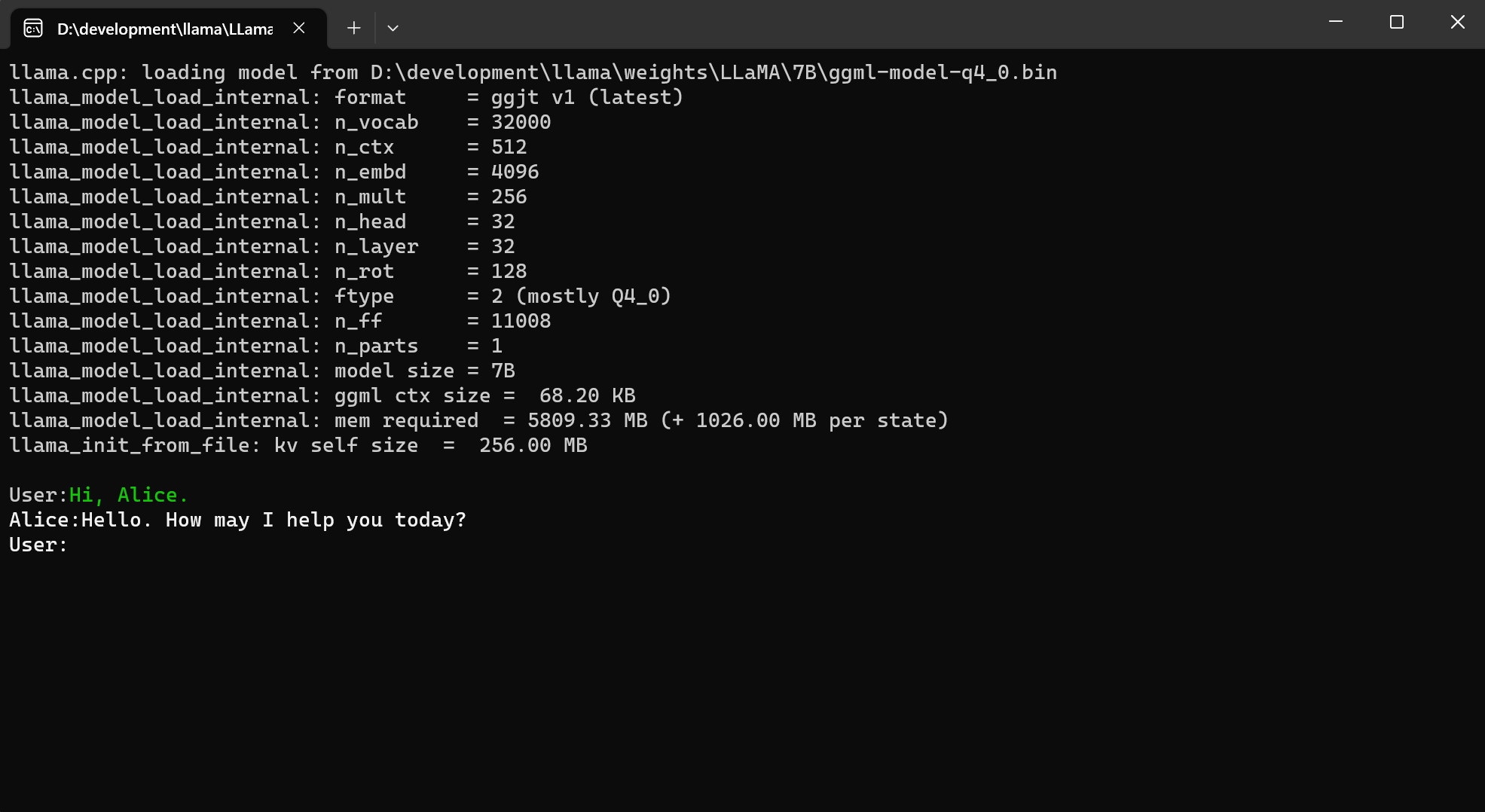The C#/.NET binding of llama.cpp. It provides APIs to inference the LLaMa Models and deploy it on native environment or Web. It works on both Windows and Linux and does NOT require compiling llama.cpp yourself.
- Load and inference LLaMa models
- Simple APIs for chat session
- Quantize the model in C#/.NET
- ASP.NET core integration
- Native UI integration
Just search LLamaSharp in nuget package manager and install it!
PM> Install-Package LLamaSharp
If you want to run it only on CPUs, please install LLamaSharp.Cpu. The only difference between them is native library.
If you have GPU on windows but fail to run with the error failed to load libllama.dll or one of its dependencies, please try downloading the cublas support dlls here. For example, cudart-llama-bin-win-cu11.7.1-x64.zip
is the one for CUDA 11.7.
Currently it's only a simple benchmark to indicate that the performance of LLamaSharp is close to llama.cpp. Experiments run on a computer
with Intel i7-12700, 3060Ti with 7B model. Note that the benchmark uses LLamaModel instead of LLamaModelV1.
-
llama.cpp: 2.98 words / second
-
LLamaSharp: 2.94 words / second
Currently, LLamaSharp provides two kinds of model, LLamaModelV1 and LLamaModel. Both of them works but LLamaModel is more recommended
because it provides better alignment with the master branch of llama.cpp.
Besides, ChatSession makes it easier to wrap your own chat bot. The code below is a simple example. For all examples, please refer to
Examples.
var model = new LLamaModel(new LLamaParams(model: "<Your path>", n_ctx: 512, repeat_penalty: 1.0f));
var session = new ChatSession<LLamaModel>(model).WithPromptFile("<Your prompt file path>")
.WithAntiprompt(new string[] { "User:" );
Console.Write("\nUser:");
while (true)
{
Console.ForegroundColor = ConsoleColor.Green;
var question = Console.ReadLine();
Console.ForegroundColor = ConsoleColor.White;
var outputs = session.Chat(question); // It's simple to use the chat API.
foreach (var output in outputs)
{
Console.Write(output);
}
}The following example shows how to quantize the model. With LLamaSharp you needn't to compile c++ project and run scripts to quantize the model, instead, just run it in C#.
string srcFilename = "<Your source path>";
string dstFilename = "<Your destination path>";
string ftype = "q4_0";
if(Quantizer.Quantize(srcFileName, dstFilename, ftype))
{
Console.WriteLine("Quantization succeed!");
}
else
{
Console.WriteLine("Quantization failed!");
}We provide the integration of ASP.NET core here. Since currently the API is not stable, please clone the repo and use it. In the future we'll publish it on NuGet.
✅ LLaMa model inference.
✅ Embeddings generation.
✅ Chat session.
✅ Quantization
✅ ASP.NET core Integration
🔳 WPF UI Integration
🔳 Follow up llama.cpp and improve performance
The model weights is too large to include in the project. However some resources could be found below:
- eachadea/ggml-vicuna-13b-1.1
- TheBloke/wizardLM-7B-GGML
- Magnet: magnet:?xt=urn:btih:b8287ebfa04f879b048d4d4404108cf3e8014352&dn=LLaMA
The weights included in the magnet is exactly the weights from Facebook LLaMa.
The prompts could be found below:
This project is licensed under the terms of the MIT license.

